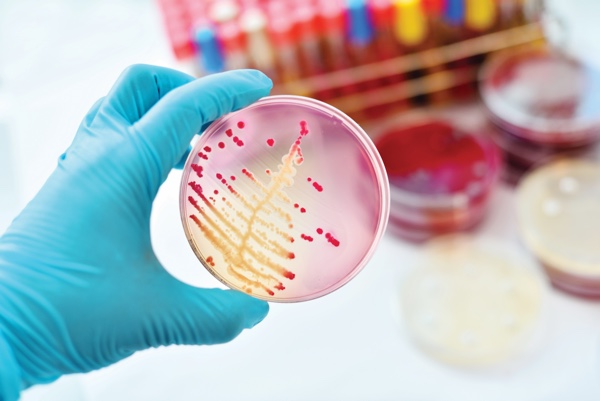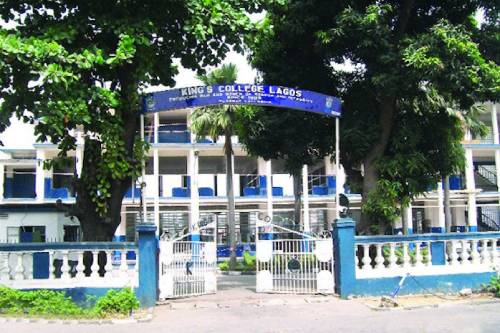International Microorganism Day: When will Nigeria recognise the potential of microbiology?
Today’s International Microorganism Day is celebrated by countries that understand the importance of microbes, one of nature’s smallest but important entities. Sadly, Nigeria is a bystander in the fanfare to celebrate these microscopic organisms first seen and described as animacules by Antoni van Leeuwenhoek over 300 years ago.
While the giant of Africa continues to celebrate oil money at the expense of the environment, microorganisms are overlooked as inconspicuous, and perhaps, non-contributors to the financial and general well-being of Nigeria. This should not be the case, as microorganisms can play pivotal roles in several sectors.
For a start, oil spillage is a major environmental challenge in the South-South region and chemically-based cleanup efforts could continue to make waters and soils unsafe until biological cleanup technology is conducted. This is a job suited to petroleum-degrading microorganisms (e.g. Pseudomonas putida, Xanthomonas sp.) and scalable results have been reported by Nigerian microbiologists waiting for the next level.
Environmental clean-up is not restricted to petroleum only; removal of industrially-produced poisonous, cancer-causing heavy metal wastes is made possible by microorganism-powered biosorption and bioaccumulation. Effectively used in several countries, including Canada and South Africa, results of Nigerian studies that can be scaled for industrial purpose are confined to scientific journals, and the organisms gather dust in laboratories
Advertisement
Similarly, mounting municipal wastes, especially in the fire-prone Olusosun dump site, can be used as a substrate for biogas production. Several households in Ogun state and environs use this cooking gas-producing technology through their wastes, thanks to the championing spirit of intellectuals such as Moses Oyatogun, a lecturer in the department of forestry and wildlife management, Federal University of Agriculture, Abeokuta. Government can step in instead of spending billions on “clean” cooking stoves. The menace of drainage-blocking, flood-casing plastic wastes could also be turned to wealth via plastic-degrading microorganisms, an area of research still in its infancy.
Furthermore, infections emanating from poor environmental practices require the microbiologist’s expertise. While SARS-CoV-2 currently holds the world to ransom, many bacterial and fungal pathogens continue to claim lives and are becoming more difficult to treat due to drug resistance. This necessitates need for new drugs, a venture few researchers are eager for due to lack of funds and its complex, interdisciplinary nature. The potential is, however, present as a novel antibiotic compound was recently purified from the Nigerian environment, a first in several decades. This requires the government and private sector involvement. The Lagos lagoon and other marine habitats are yearning to expose their drug secrets.
However, unknown infections are waiting to wreak havoc, with updated diagnostic and serological tools required for prompt preparation of life-saving medical protocols. As an example, Melioidosis is a bacterial infection caused by Burkholderia pseudomallei found in rice farms. It was isolated in UK from a traveller to Ogun state but never investigated in Nigeria, and increased rice farming could make this a ticking time bomb.
Advertisement
A healthy population is also promoted by the quality of food it eats and a good digestion, a double action profile fit for fermented foods. Produced using bacteria as starter cultures, foods such as ogi, yoghurt, cheese among others are famed for their probiotic, nutritional and digestive prowess due to the supply of good bacteria into the stomach and intestine. Presence of a microbiologist in the industry would help in proper incorporation of these good microbes as additives in other foods.
While the food industry is still crawling, exploration of glucose syrup production, an important industrial raw material, by microbial enzymes is still in its infancy. Microbial amylases for syrup production are a well-known technology but Nigeria still import more than 70% of glucose syrup in a country of proven enzymologists that have achieved enzyme efficiency. Why should the government keep contacting these professors to draw up scale-up models that end up as withdrawal slips in Abuja? When would we move on from kilishi technology after 33 years of Raw Materials Research and Development Council (RMRDC) existence?
All of the above can only be realized when the microbiology profession is truly recognised in the laws of Nigeria. A recent Twitter discussion labelled #ProfessionalizeMicrobiology revealed that most microbiology graduates have turned wanderers due to non-recognition of their profession. Outreach to secondary schools also revealed a dearth of interest, the question “what would I be doing with microbiology after graduation?” lingers despite the fascinating prospects.
Overtures by the Nigerian Society for Microbiology (NSM), the umbrella body of Microbiologists, for government to professionalise and reap the numerous potentials of microorganism have been met with malaise. Under the previous and present leadership of Late Prof. Iyang Akpan and Prof. Mohammed Bello Yerima respectively, NSM has lobbied the senate for the creation of a Microbiology Council of Nigeria, and the bill finally scaled first reading in 2019, but nothing has been heard ever since. The bill (SB. 139), presented by Senator Jibrin Barau, will put the profession on the same footing with other disciplines in the country, and it is hoped that this senate would give speedy passage before the end of its tenure.
Advertisement
Sunday Omeike, PhD, is a microbiology lecturer in the Department of Biological Sciences, McPherson University, Ogun state
Views expressed by contributors are strictly personal and not of TheCable.
1 comments







Excellent insightful write-up by Dr. Omeike..All grounds covered in this explosive write-up. Well done.